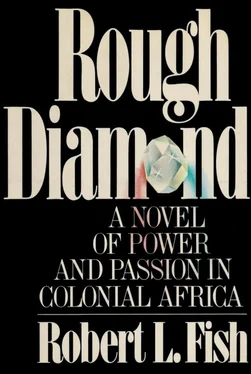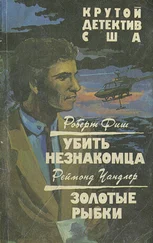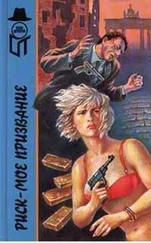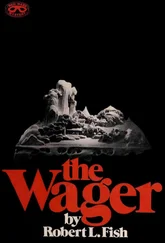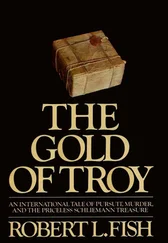“For the crime of high treason against the Transvaal Republic, it is the sentence of this court that you four men be taken to the place of execution and there be hanged by the neck until you are dead.” He drew a deep breath. “May Almighty God have mercy on your souls…”
President Paul Kruger looked up from the papers he was studying as his aide entered the room and cleared his throat hesitantly for attention. Had his aide been anyone except his wife’s nephew he would have been dismissed long since. Kruger sighed.
“Yes? What is it?”
“Mr. Barnato is here. He would like a few minutes of your time.”
“Oh?”
“He… he’s dressed all in black, in mourning, and he has crepe around his hat. I… I imagine it’s in regard to the trial.”
“I imagine it is,” Kruger said briskly, surprised at his aide’s perception. Maybe something could be done with the boy yet. “Where is he?”
The aide appeared a bit puzzled. “He didn’t come in, sir. He went back and sat down on the top step of the stoep—”
Kruger’s face did not change expression a bit. “Tell Mr. Barnato I will see him in here. He will understand. This is not a friendly visit. No, don’t tell him that last part!” he added with irritation as he saw the aide silently repeating his words after him. Maybe nothing could be done with the boy, after all. “Idiot!” he muttered as his aide left the room, and put aside the papers he had been working on.
Barney came into the room and stood, crepe-banded hat in hand, before the seated Kruger as the aide withdrew, closing the door softly behind him. It was evident from the aide’s words and looks that this was going to be quite different from the meetings he had had with Kruger in the past. Kruger considered him for several moments, his fleshy face almost granitelike, and then gestured a trifle formally toward a chair. Barney seated himself, placing his hat on the floor beside him. He recognized that Kruger was being distant to avoid making any concessions to him, but he also recognized that the situation was far too serious to be put off by minor dramatics.
“Mr. President—”
Kruger waved a hand abruptly, interrupting. “Mr. Barnato, I can imagine why you are here. I’m very busy, but in view of our past relationship, I have granted you a few minutes of my time. Let me save you time. The trial is over; the sentences passed. There is nothing I can do.”
“Mr. President, there are many things you can do!” Barney was leaning forward, his eyes fixed on Kruger’s unbending face, his voice urgent in its force. “You can commute the sentences, you can cancel them altogether. You can declare the trial a farce, which it was. Whoever heard of pleading guilty to a charge of treason? It’s the same as taking a gun to your head and pulling the trigger! Whoever heard of putting your defense aside and leaving it up to the court to give you whatever sentence it decides on? Don’t tell me there isn’t anything you can do!”
Kruger’s voice was cold. “Perhaps I mean there is nothing I wish to do. Nothing I intend to do. Tell me, Mr. Barnato,” Kruger went on, his voice remaining expressionless, “suppose this raid had succeeded? Suppose the people of Johannesburg, without reason but incited by these dangerous fools, suppose they had risen in revolt at the successful entrance of Jameson and his troopers into the city? Suppose the attack on the arsenal here in Pretoria had been successful — oh, yes, we were fully aware of the intention long before your Captain Jameson became impetuous and started ahead of his instructions — suppose, in brief, that the revolution had been a success? What would your Colonel Frank Rhodes, or your John Hays Hammond, or your Carl Luckner, or your Lionel Phillips — what would these gentlemen have done with old Oom Paul Kruger?” He made a gesture, one hand drawn across his throat.
“No, sir! They would never have harmed you! They are civilized men—”
Kruger laughed, a harsh laugh.
“Civilized men? Who? Your Captain Jameson, who made a peace pact with the Matabele and then went in with his troopers when Lobengula was unprepared and slaughtered his tribesmen and sent him to die in the bush? Who? Your Carl Luckner, who kicked your own father-in-law to death with his boots for nothing at all? We know of these things, Mr. Barnato; we know our enemies. These are civilized men who rode into our Transvaal Republic, a country at peace with the world, with hundreds of armed troopers with the intention of taking over our country, and of killing anyone in their way? Civilized men! They sent their wives just yesterday to plead with my wife to intercede with me for mercy. My wife, Sanne, said, ‘And if they had had their way, what would they have done to my husband?’ And they said nothing, Mr. Barnato; they had nothing to say. Women know, Mr. Barnato; they know. Ask your own wife, she’ll tell you.” He shook his head. “No, Mr. Barnato. If you let a lion live after he tries to kill you, will he appreciate it? In the Bible it says that Daniel aided a lion and the lion remembered, but Daniel was a prophet, and we are not prophets, Mr. Barnato. Daniel was a holy man, but we are not holy men, Mr. Barnato. No; if you let a lion live after he tries to kill you, he will simply think you are weak or that you are stupid and he will strike you down at the next opportunity. Although,” he added with contempt, “what we are talking about here are not lions, but jackals.”
“Mr. President,” Barney said, fighting down the feeling that he was wasting his time with the arguments he was using, “believe me when I tell you I know these people. It would have been a bloodless — a bloodless—”
Kruger smiled humorlessly at the other man’s hesitation.
“A bloodless what, Mr. Barnato? A bloodless revolution? Other than hanging poor old Oom Paul Kruger, and who would worry about that except old Kruger himself, and maybe his family? A bloodless revolution, Mr. Barnato? Was there ever such a thing?” He leaned forward a bit, his jaw hard. “Let me tell you something! They killed twelve of our people, and for that they should all be hanged, not just those four! True, they lost more than that themselves, many more, but they killed twelve innocent Boers — twelve innocent men and boys! Killed! Men and boys who only wanted to be left alone to tend their farms and their flocks and their herds!” Kruger leaned back, his face rigid. “You know these people, you say? I never met them, but I know them better!”
Barney took a deep breath and changed his tactics. “Mr. President, look what you have gained from this affair—”
“Gained?” The bushy eyebrows went up. “Gained what? Twelve dead men and boys? Boer mothers who look to me to protect their husbands and sons, and now come to me crying?”
Barney looked Kruger in the eye. “Cecil Rhodes has resigned as Premier of the Cape because of this fiasco. I know how you feel about Rhodes as well as I know how he has always felt about you. You and he have been enemies for years. He’s a sick man and now, beyond that, he’s finished politically because of this raid. Surely that’s a gain for you. You can afford to be merciful.”
Kruger considered him almost sadly as he slowly shook his head.
“Mr. Barnato, you are a businessman, not a politician or a soldier. Stay with your businesses and leave politics and soldiering to others. The resignation of Cecil Rhodes will not help the Transvaal a bit. Eventually, probably — almost assuredly — it will mean further tension between the Boers and the British. It may in time, in a very short time, lead to war. Rhodes may have resigned because he had no choice after encouraging, even organizing, an attack on a friendly neighbor, but he will never give up his ambitions as long as he breathes. Nor, unfortunately, will England. We are a small people and Britain is a very large empire. The failure of Jameson’s raid will not end anything; most probably it will only begin something.”
Читать дальше
